Why Your Could Be Getting ‘Weird Vibes’ From Overly Nice People.
Have you ever met someone (usually in sales or HR) with a smile that just feels fake. Somewhere, maybe deep down, you can tell that smile has to change as soon as their alone. There’s just ‘something’ inauthentic about it.
Even though they’re overly nice, smiling, and bending over backwards, there’s a feeling of uneasiness or maybe a bad vibe that you feel from them.
I had a 5th grade teacher that was constantly smiling (even when she was scolding you). I didn’t understand why, but even as a 5th grader It made me feel uneasy and distrusting. There’s a certain inauthentic feeling that you get when someone is “overly nice”.
This is called “toxic positivity”.
In this article we’ll take a deep look at why being overly nice can send off bad vibes to those around you and make your life more difficult and stressful than it needs to be.
Let’s Dive In
Why Are You So Dang Nice?
There’s a difference between “being nice” and “being TOO nice”. The world needs more nice people spreading good vibes. But the world also needs authenticity.

Speaking from personal experience, oftentimes I used to act overly nice out of fear. Fear of not fitting in, fear of someone not liking me, fear of looking dumb, fear of someone’s anger. Fear of confrontation, ect.
But it’s not just fear. Acting overly nice is a way of hiding one emotion by masking it with another. Our sub-conscious and unconscious minds can often pick up on the body-language and micro-expressions of someone’s who’s being “inauthentically overly nice”.
When someone is acting ‘overly positive’ in social situations regardless of the challenges that they face and potentially silencing their other emotions it’s called toxic positivity.
What Is Toxic Positivity ?
According to Medical News Today, toxic positivity is when a person may try to appear happy all the time. Even despite having internal feelings otherwise.

Toxic positivity can be forced down on someone (often by employers in sales jobs) or can be self-imposed. Either way toxic positivity is unhealthy and forces you to silence negative emotions, dampen grief, stifle authentic emotions, and places you under pressure to pretend to be happy (even when you are struggling).
Being Kind vs Being Nice vs. Being TOO Nice
How do you know what the difference between being kind, nice, or too nice?
The difference between nice, kind, and ‘too nice’ can be slight, but significant distinctions in human behavior. Here’s some examples.
Stopping off the road on your way to get coffee in the morning to help someone change a flat tire, is an act of kindness.
Holding the door open to the front of the coffee shop for someone right behind you, is nice.
Holding the door for the person behind you, and then telling them that their hair looks great, they’re beautiful, and you’re going to order them a present on Amazon, is ‘too nice’, (and should probably raise some red flags if we’re being honest).
Another example of ‘too nice’ might be a stereotypical HR manager who has the same smile plastered on their face morning, night, and when their firing someone. You might even wonder if they’re going to snap at some point.
5 Negative Effects of Being (too) Overly Nice
1. You Can Be Seen As Being Weak –
As John Heywood’s famous quote from 1546 says “Give an inch and they’ll take a mile”.

While being nice and kind can be seen as being understanding and empathetic, being overly nice is often seen as a sign of ‘catering’ and weak minded.
2. Being ‘Too Nice’ Can Put Pressure On Your Partner –
Marriage and Family Therapist Steve McCready has found through years of counseling experience, that there’s actually value and benefit that comes from conflict.
Not everyone sees things from the same perspective, so healthy conflict helps resolve differences and get on “the same page”. Most people don’t enjoy conflict, especially in our primary relationships, the place where we often go for comfort.
But by being ‘too nice’ and avoiding confrontation by keeping your feelings, thoughts, opinions, and ideas tucked away it creates an emotional imbalance. And over time, any system with an imbalance like that is going to have problems according to McCready.
In the case of being overly nice and hiding true feelings, your relationship is more likely to build resentment on both sides and decrease your willingness to take the lead.
3. People Will Try To Take Advantage Of You –
Part of being ”too nice” and being seen as week is getting ‘walked on’ by people looking to take advantage of you.
4. You Will Attract Needy People, Narcissists, and Manipulators –
What’s worse than being taken advantage of, is naturally attracting people that will take advantage of you.

Sort of like a yin to a yang, people who naturally tend to take advantage of other people, gravitate towards people who are naturally ‘too nice’ and allow themselves to be open to manipulative and overbearing type of people.
For example, narcissists.
5. People Will Not Trust You –
Being overly nice may seem cute, bubbly, or flirtatious on the surface level, but on deeper sub-conscious and unconscious levels, there’s a ‘strange vibe’ associated with being overly nice.
This “strange vibe” can be tough to conscious pick up on, but somewhere deep there’s a feeling of in authenticity. Which can be interpreted as mistrust or uncertainty.
13 Signs That You Might Be Acting (overly) ‘Too Nice’
There’s obviously no “one size fits all” for every human interaction. But generally speaking, here are some common signs of people who are overly too nice.
1. You Feel Like You Are Always Giving (and now people expect that from you) –
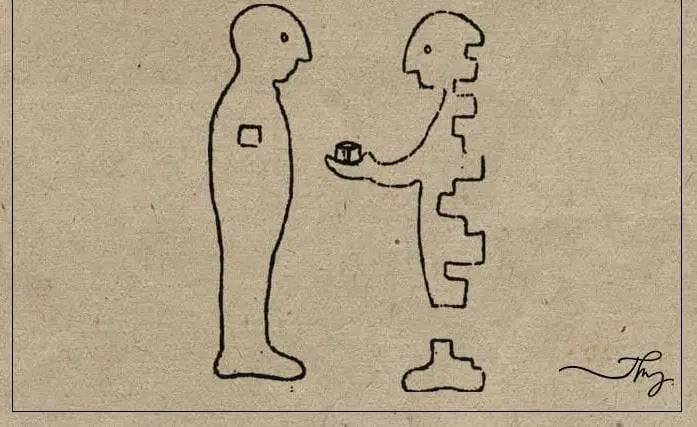
There’s a natural give-and-take (or yin and yang if you will) to any relationship. But if you’re always the giver it creates an imbalance. This is true at work, at home, in business, and in life.
If you always give, then people will begin to expect that of you and you open yourself up to being taken advantage of. Always giving is exhausting (even for the most extroverted of us).
You don’t always need to charge other people’s batteries (metaphorically speaking). Sometimes you need to let other people charge (or drain) their own battery, while you set boundaries and protect your battery life (again, metaphorically speaking)
2. It Sometimes Feels Like People Only Call When They Need Something –
Have you noticed that people only come to you when they need something?
Being a good friend is one thing. But having your good nature being taken advantage of by people who “only call when they need something”, is not what most of us would call a “” healthy friendship””.
If you often find yourself catering and helping “friends” who seem to ne taking advantage of your ‘niceness’, it might be a sign that you could set stricter boundaries. For your own sake!
3. You Feel That People Do Not Respect You or Your Boundaries –

Do you often feel disrespected or disregarded? Do people walk all over your personal boundaries?
According to licensed therapist Keischa Pruden, when you’re “”too nice””, it opens the door for everyone else to cross your boundaries with their ‘dirty laundry’, bad moods, snide remarks, and mean judgements. They wouldn’t dare say those types of things to someone else. But your nice, so apparently you’re fair game.
4. You Begin To Resent The People You Are Nice To –
Constantly being nice is exhausting. Even more so when you feel forced or pressure to be nice.
According to licensed marriage and family therapist Robyn D’Angelo, LMFT…
“Being too nice or not speaking your truth will eventually lead to deep resentment. When we’re always accommodating others, we can start to feel invisible, unimportant, (and disconnected).”
Even if the people you’re being nice to are nice back resentment can form over time. You might feel like you’re being nice and sacrificing, but that you’re also under appreciated. This feeling of under-appreciation (whether justified or not) will eventually lead to feelings of resentment towards the people who you constantly play nice for.
In their defense, maybe you don’t have to ‘act’ happy. Try just being authentic good, bad, or ugly (but hopefully still in control of your emotions). Authenticity leaves no room for resentment.
5. You Find Yourself Apologizing For Things That Aren’t Your Fault –
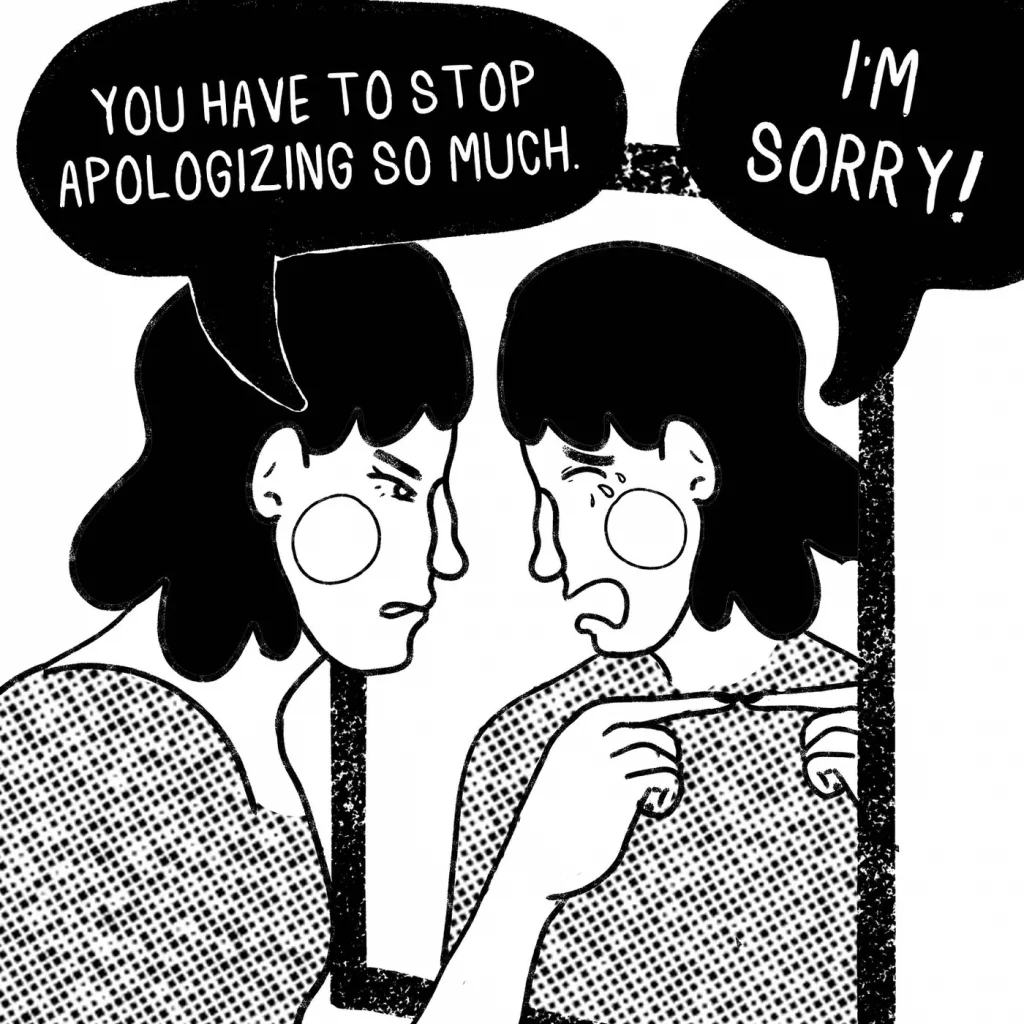
There’s a right time and a right way to apologize, but there’s also a time when you shouldn’t apologize. And that’s when you’re not at fault.
People who tend to be overly nice apologize for things they didn’t do wrong, and also for things that weren’t under their control.
I read a funny anecdote about someone who knew they were being too nice after they ran into a tree and then apologized to it.
6. You Avoid Any Conflicts In Case It Upsets Others –
Most people don’t enjoy conflict (unless you’re a lawyer). But conflict is a natural part of life and understanding of truth.
Professional psychotherapist, author, and mother of two, Dr. Ilene S. Cohen, has found that in her personal life, and thorough professional experience, that when handled correctly, conflict can be both healing and beneficial.
According to Psychology Today, when we don’t express ourselves (out of fear for upsetting others) we tend to internalize (or suppress) our true feelings. This suppression of true feelings may avoid a negative conflict in the present moment, but long term, it builds up and negatively affects our bodies, minds, and overall energy levels.
Masking our true feelings with a “happy face” eventually starts to eat away at us.
7. You Find Yourself Prioritizing Others Before Yourself –
Do you find that you lack time to yourself, constantly prioritizing other people’s time ahead of your own?
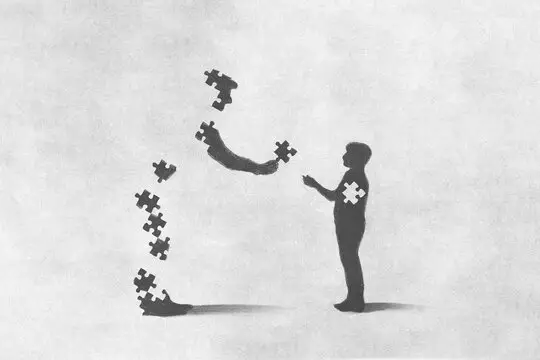
No doubt there are good reasons and beneficial qualities to being generous and giving our energy to others….
BUT, Dr. Lisa Firestone PHD (clinical psychologist, author, and the Director of Research for the Glendon Association) has found, through years of professional experience, that when we lose touch with our grand passions and tiny quirks that make us who we are, (by giving away too much of our own time and energy), we diminish the quality of our own lives.
8. You Find Yourself Agreeing To Things You Don’t Actually Want To Do –
This kinda goes back to avoiding conflict. Agreeing to do a task you don’t really want to do often seems like a surefire way to win approval. But in reality you may be opening yourself to get “stepped on” and holding back your true inner feelings.
According to experts at Healthline, people often agree to do something (even though they’d rather not do it) in order to seem more ‘likable’ or avoid conflict.
Obviously if your best friend asks you to help them move, then that’s another story.
But when you agree too much this becomes a pattern that can cause problems. Consistently agreeing to things that you don’t really want to do tells people their needs come before yours.
And some people (like narcists) will abuse your agreeability , ignoring your boundaries, because they know you’ll do what they want anyway.
9. You Live In An Unrealistic Dream World –
Everyone has dream and goals and we’re not saying you shouldn’t shoot for the stars! But by being “overly too nice” it can develop into a form of what, the grandfather of modern day psychology, Freud, would call denial.
You don’t want to end up living in a bubble.
If you push down your negative feelings, ignore your other authentic feelings, and create a fantasy world where everything is hunky-dory all the time, most will agree that it is not a healthy or enjoyable way of living.
Being optimistic is one thing, but pretending nothing is ever wrong, upsetting, annoying, or angering is – well, upsetting to the rest of us who experience reality for what it is.
10. You Often Worry About Being Liked –
Wanting to be liked is not the same as needing to be liked. Everyone want to be liked to some degree or another. But not everyone worry’s about being liked or “needs” to be liked by everyone.

Dr. Kurt Smith writes in “Psych-Central”, that people striving hard to be liked may come across as trying too hard to be nice.
Dr. Smith has found, from his years of experience in psychology and therapy, that constantly worrying about being liked (and overcompensating by being overly nice) is often the result of victims of emotional, verbal, or physical abuse in past relationships.
These traumas can leave the lasting feeling of constantly seeking approval and acceptance from those around you.
11. You’re Exhausted All the Time –
Being overly (too) nice takes a lot of energy. Your body is constantly working overtime to ‘put on a happy face’.
12. Periodic Burn-out and Acting Out –
Being exhausted all the time is just the tip of the iceberg. Eventually it will lead to burn-out and acting out.
Speaking from personal experience I’ve reached burn-out a couple times. This has led to feelings of lacking control in life, depression, and anxiety. Eventually I would act out in a sub-conscious (or maybe unconscious) attempt to feel control over my life.
But burning out and acting out doesn’t have to happen.
I’ve sense learned not to “bottle things up” or ‘put on a happy face’ and have started to express myself more freely.
13. You’re Overly Self-Critical –
Self-criticism and reflection are both an important part of developing inner strength and self-awareness. But it’s also easy to cross the line between critical and “overly critical”.

Licensed Clinical Social Worker Robert Taibbi has found in his experience, that people who are “overly nice” tend to blame themselves more often (whether it’s really their fault or not).
For example, “I should have known better”, or “I must have did something that caused them to act that way” (although you honestly have no idea what you could have done)
You may even have a critical inner voice scolding, drilling down, being overly harsh, and looking over your shoulder, seemingly wagging its finger.
Under the immense mental pressure of your inner voice, you vow to try harder, not screw up, be even nicer, but whatever you do, it feels like it’s never good enough.
The good news is, there are ways to re-train your inner voice.
7 Tips to Help Move Past (and overcome) Being Overly Nice
In the words of the experts, being overly nice is a defense mechanism to bury, hide, cover-up, dismiss, or filter out other emotions (sometimes consciously, sometimes unconsciously).
Like any habit, it’s not something that’s easy to break or change and will take time, conscious awareness, and patience.
1. Consider Why You Value Being Nice –
Experts suggest taking some time to reflect upon what exactly it is that you value about being nice, and then think how you can maintain it, while also asserting yourself and being more vocal about your own needs.
You can still be nice and assertive at the same time.
For example, I like to give a good explanation for why I’m pushing back on something. And I make a point of keeping my language calm, humble, conversational, and with an approachable tone of voice.
2. Dare To Disrupt –
Sometimes speaking your truth will disrupt things.
That’s the way it goes.
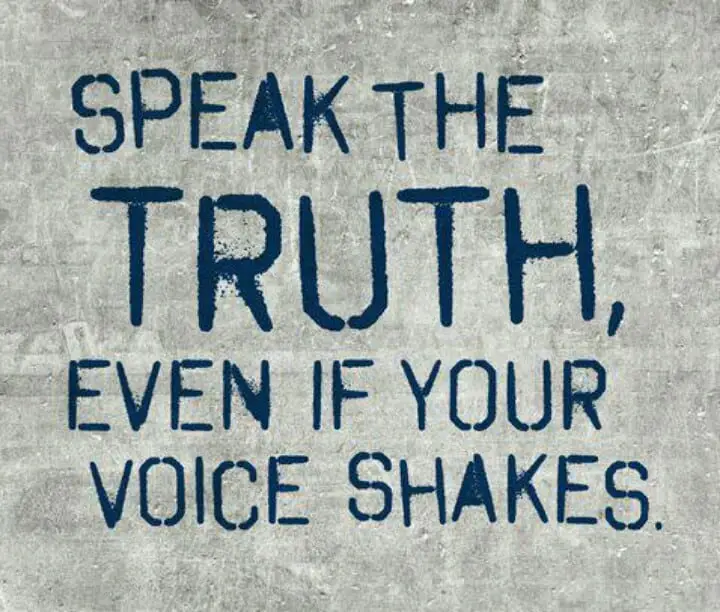
But sometimes it has to be done. The truth must be told. And you must dare to disrupt the status quo. Some people thrive on disruption, other who are ‘too nice’ have a phobia of disruption.
By daring to disrupt, you offer an alternative perspective to think about and experience the world. Being nice and “maintaining the status-quo” only gives others more of the same.
Sometimes disruptions are good surprises that benefit everyone in the long term.
3. Put Yourself First –
If you’re not used to putting yourself first, it can feel strange or even daunting at first. Like any habit or skill, putting yourself first can take practice and repetition. But it’s a practice that can save your mental health.
According to Dr. Robert Allan, “setting boundaries or expressing your needs may feel like drawing a line in the sand: On one side, we stand alone with the things we want. On the other, it can seem as though there are pissed off people who need us to forget ourselves”.
Through experience, Dr. Allan has found that find a community of friends or family members that support you putting yourself first (with-out an apology) is critically helpful to helping you feel more empowered.
4. Practice Saying No –
If saying no is challenging for you, don’t worry, because you’re not alone. Saying no, is an emotionally intelligent skill that anyone can master.

No is a powerful word that can sometimes feel elating to say and can also sometimes feel devastating to hear. Obviously, depending on the situation, saying no can be on a spectrum of emotional impact.
Cornell professor and psychologist Dr. Vanessa K. Bohns conducted research in 2016 which found that…,
“Many people agree to things—even things they would prefer not to do—simply to avoid the considerable discomfort of saying no”.
So, it takes practice.
5. Practice Being More Honest –
Just like saying “no”, sometime being honest about how you truly feel can be extremely difficult.
Best-selling author Allison Fallon writes that few things in life are more frustrating than the feeling of having things you want (or need) to say and yet, the words just don’t come out.
Speaking from experience, it once took me 3 weeks to quit a job I truly liked but was losing money at. I was young and just couldn’t muster the” hutzpah” to be honest about how I felt.
Eventually I was honest, left on good terms, and ever since then being honest and having difficult conversations became much easier for me in the years that followed.
It may take time to build the courage to speak your truth, but when you practice speaking your truth, it gets easier and will make you stronger in the future.
6. Practice Standing Up for Yourself –

Experts at Success.com teach that “learning to stand up for yourself will help you take charge of your life, believe in your own power and embolden you to reach for your dreams.”
At the Chelsea Psychology Clinic, the expert team of professionals have found that writing down ways you might be giving in too much and reflecting upon your answers. Once you write down areas in your life where you could stand up more for yourself , then you can gradually start to level them out, one by one.
If you’re not sure of what to write or where to start, you can try writing statements like,
“I would really love it if…”
“I want….”
“It’s important to me that I feel…”
The team at Chelsea Psychology Clinic also stresses to “Start small and build your confidence up slowly”
Standing up for yourself and being assertiveness is a skill which means you need to practice it. It takes time to stand up for yourself with tack and empathy.
It’s likely to feel scary at first so start with the smaller things that don’t feel so intimidating and work your way up to standing up for bigger (more emotionally taxing) things.
7. Overall, Practice Being More Transparent & Authentic –
It’s not always easy (especially at the start), but by practicing and learning to express yourself freely, openly, honestly, and transparently it will (quite literally) feel like a weight has been lifted from your shoulders.
Easier said than done right?
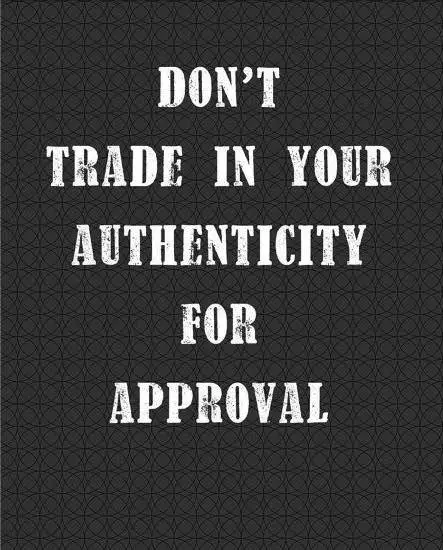
Transparency is the key to expressing yourself freely.
I used to struggle with open communicating until I learned to not only express myself, but also provide the transparent reasoning behind why I feel (or think) the way I do.
By providing the reasoning behind my thoughts and feelings I am able to be authentic with my communication and give whoever I’m communicating with a more complete understanding of my intent and where I’m coming from.
Conclusion: Is Being ‘too nice’ A Bad Thing?
The world needs more nice people.
Saying that being “too nice” is a bad thing sounds harsh, but certainly being ‘too nice’ can put you at a disadvantage and leave you vulnerable.
Ultimately, if you’re niceness’s is rooted in fear, insecurity, or inauthenticity it’s “weighing on you” and that can’t be a good thing.
We’re all humans, and humans have emotions other than sheer joy and happiness.
Do you value being perceived as nice all the time, or do you value being perceived as authentic all the time, because you can’t have both.
Loved what you read?
Hit that share button and let the world in on the secret – we’d be thrilled!
Got thoughts? We’re all ears for your feedback, corrections, or a good old chat. Don’t be shy; drop us a line.
And hey, don’t miss out on our curated list of must-reads in the recommended books section.
Big thanks for diving in with us today!




